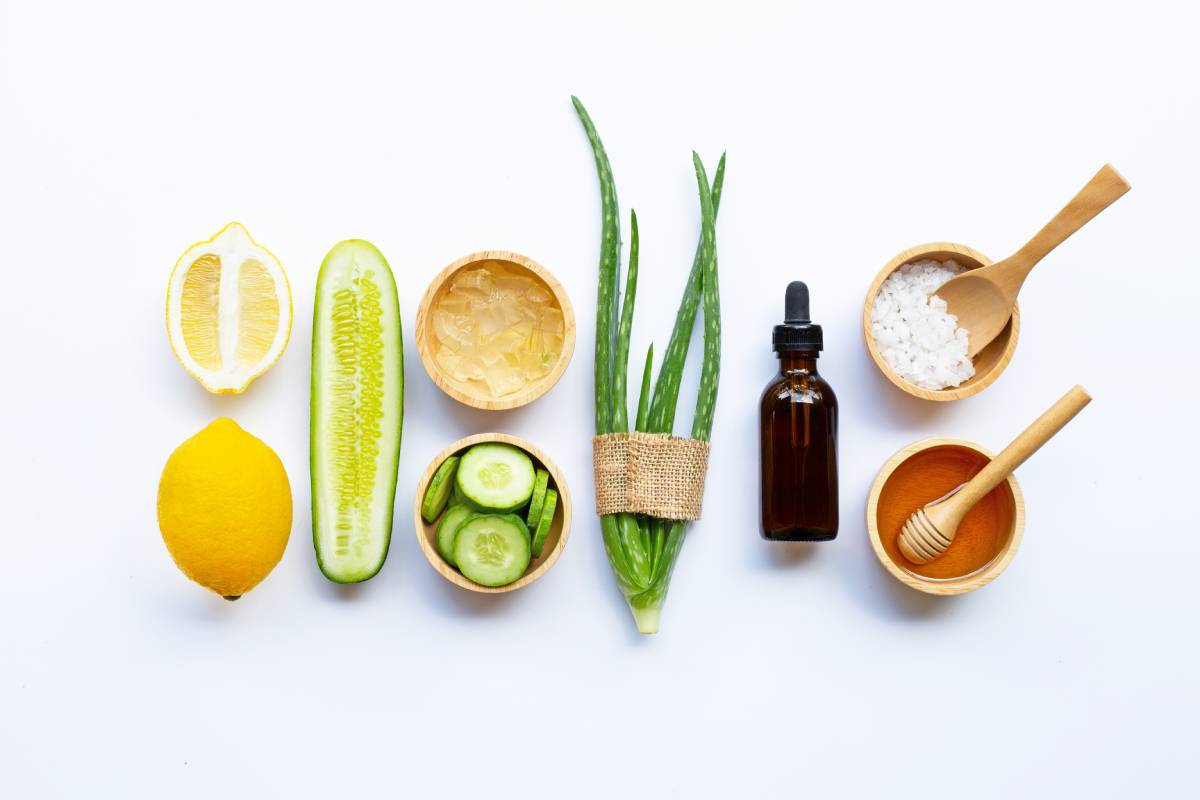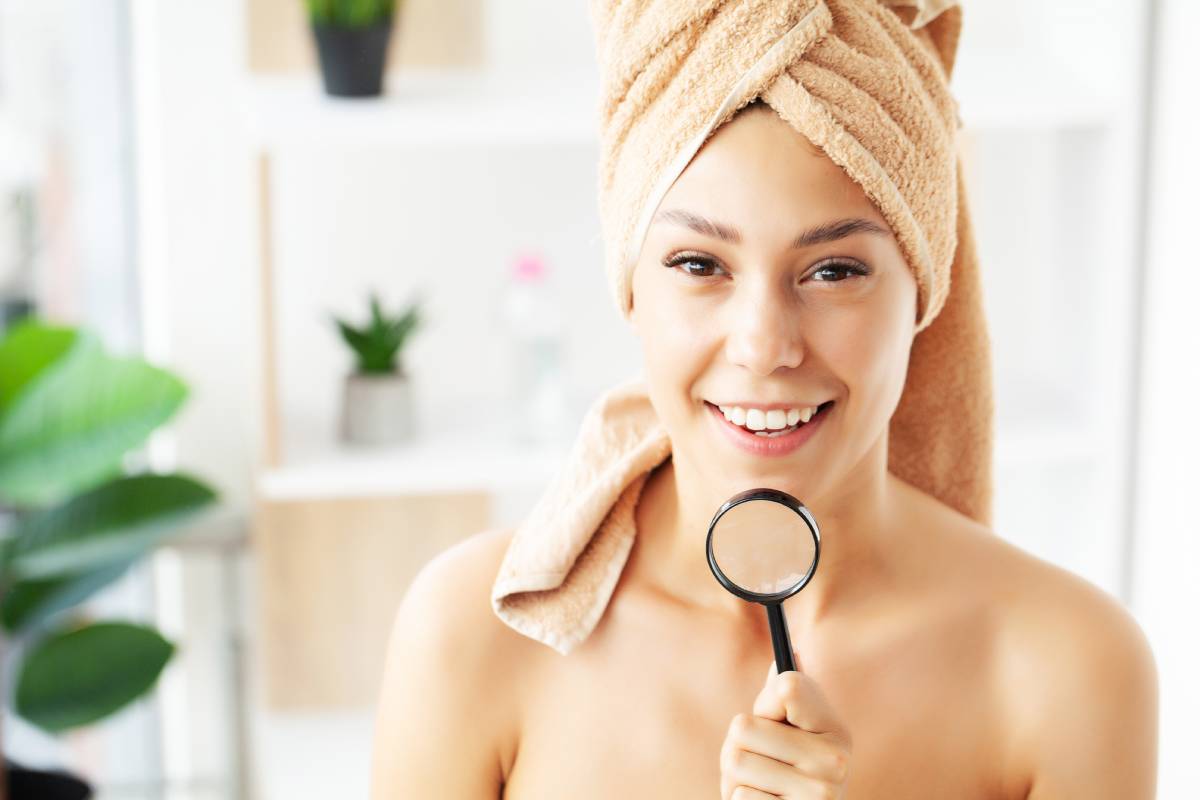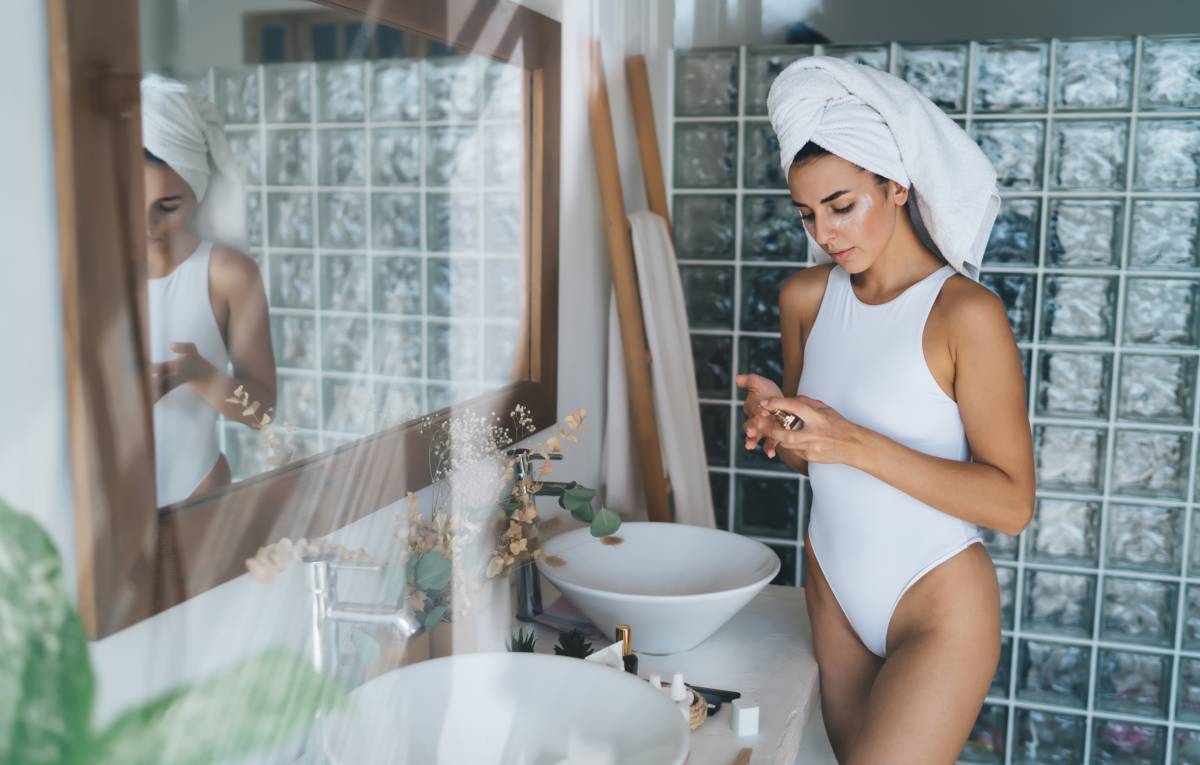
How health and beauty are connected?
Firstly, maintaining good health contributes to radiant skin, shiny hair, and strong nails. Adequate nutrition, proper hydration, and regular exercise play crucial roles in supporting the body’s physiological functions. Nutrient-rich foods provide essential vitamins and minerals that nourish the skin, promoting a healthy complexion and preventing issues like acne or dullness.
Hydration is another key factor in the health-beauty connection. Drinking enough water helps flush out toxins, keeping the skin hydrated and minimizing the appearance of wrinkles. Well-hydrated skin looks plump and youthful, highlighting the direct link between internal health and external beauty.
Regular exercise not only enhances cardiovascular health but also improves circulation, delivering nutrients and oxygen to skin cells. This increased blood flow contributes to a natural, healthy glow. Additionally, exercise helps manage stress, which is a significant factor in skin conditions such as acne and eczema.
Adequate sleep is a fundamental aspect of both health and beauty. During sleep, the body undergoes repair and regeneration, affecting the skin’s elasticity and overall appearance. Insufficient sleep can lead to dark circles, puffy eyes, and a tired complexion, underscoring the importance of prioritizing rest for both health and beauty benefits.
Beyond physical appearance, mental health plays a pivotal role in the connection between health and beauty. Chronic stress can accelerate the ageing process and contribute to various skin issues. Practising stress-reduction techniques, such as meditation or mindfulness, not only promotes mental well-being but also positively impacts external beauty.
Moreover, maintaining a healthy weight through a balanced diet and regular exercise contributes to a positive body image. Embracing a realistic and sustainable approach to weight management fosters self-confidence and enhances one’s perception of personal beauty.
Skincare routines are integral to the health-beauty nexus. Proper cleansing, moisturizing, and sun protection contribute to skin health, preventing issues like premature ageing and skin damage. Sunscreen, in particular, is a vital element in preserving both the health and appearance of the skin, shielding it from harmful UV rays.
In conclusion, the connection between health and beauty is multifaceted and dynamic. Adopting a holistic approach that includes a nutritious diet, regular exercise, sufficient sleep, stress management, and a consistent skincare routine is key to enhancing both internal well-being and external beauty. By recognizing and nurturing this intricate relationship, individuals can achieve a healthier and more radiant version of themselves, both inside and out.

Is skincare a part of wellness?
Wellness encompasses the holistic approach to health, focusing on physical, mental, and emotional well-being. Skincare aligns seamlessly with this philosophy by addressing not only aesthetic concerns but also promoting the health and functionality of the skin.
At its core, skincare is a preventive measure. Establishing a consistent skincare routine involves cleansing, moisturizing, and protecting the skin from environmental factors. These practices are essential for maintaining a healthy skin barrier, which acts as a shield against pollutants, bacteria, and other external aggressors. By fortifying the skin barrier, skincare contributes to overall health, preventing issues such as infections and irritations.
Hydration is a key aspect of both skincare and wellness. Properly moisturized skin not only feels smoother but also functions optimally. Dehydrated skin is more prone to issues like dryness, flakiness, and even accelerated ageing. By incorporating moisturizers and hydrating products into a skincare routine, individuals support the skin’s ability to retain moisture, promoting a healthy and radiant complexion.
Sun protection is another critical element of skincare that directly aligns with wellness. Exposure to harmful UV rays can lead to skin damage, premature ageing, and an increased risk of skin cancer. Applying sunscreen regularly helps safeguard the skin from these adverse effects, contributing to both the short-term appearance and long-term health of the skin.
Furthermore, skincare plays a role in self-care and mental well-being. The act of engaging in a skincare routine can be a calming and therapeutic experience. Taking a few moments each day to care for your skin fosters a sense of self-love and mindfulness, contributing positively to your overall mental health.
Skincare also addresses specific skin concerns that may impact an individual’s confidence and emotional well-being. Acne, hyperpigmentation, and other skin issues can have a significant impact on self-esteem. A targeted skincare routine, combined with professional guidance if needed, can address these concerns, promoting a positive self-image and emotional wellness.
The connection between skincare and wellness is evident in the increasing popularity of clean and sustainable beauty practices. Many individuals are now prioritizing skincare products that not only benefit their skin but also align with their values of environmental consciousness and overall well-being. This shift reflects a deeper understanding of how the choices we make in skincare contribute to a more holistic approach to health.

Does skincare improve health?
Firstly, skincare promotes skin health, which is a vital aspect of overall well-being. The skin serves as a protective barrier, shielding the body from harmful external factors like bacteria, pollutants, and UV rays. By maintaining a proper skincare routine, you enhance the skin’s ability to function optimally as a barrier, preventing infections, irritations, and other skin-related issues.
Hydration is a fundamental element of skincare that directly influences health. Well-moisturized skin not only looks smoother but also functions better. Dehydrated skin can become dry, flaky, and more prone to irritation. Using moisturizers and hydrating products as part of your skincare routine helps the skin retain moisture, contributing to a healthier and more resilient complexion.
Sun protection, another key aspect of skincare, is a direct contributor to improved health. Prolonged exposure to the sun’s harmful UV rays can lead to skin damage, premature aging, and an increased risk of skin cancer. Applying sunscreen regularly is a simple yet powerful way to protect your skin from these risks, promoting both short-term appearance and long-term health benefits.
Skincare is also linked to mental well-being. Engaging in a skincare routine can be a therapeutic and self-caring practice. Taking a few moments each day to care for your skin provides an opportunity for relaxation and mindfulness, positively influencing your mental health. The act of self-care through skincare fosters a sense of self-love and contributes to a more balanced and stress-free lifestyle.
Furthermore, skincare addresses specific skin concerns that can impact emotional well-being and confidence. Conditions like acne, hyperpigmentation, or eczema can have a significant effect on self-esteem. A tailored skincare routine, possibly with guidance from skincare professionals, can target these concerns, leading to an improvement in self-image and emotional wellness.
It’s essential to recognize the preventive aspect of skincare. Regular skincare practices act as a proactive measure against various skin issues, contributing to the overall health of your skin. By preventing problems such as infections, acne, and premature aging, skincare supports the body’s natural defense mechanisms and contributes to a healthier and more resilient skin barrier.
The importance of clean and sustainable beauty practices also highlights the connection between skincare and health. Many individuals are now choosing skincare products that not only benefit their skin but also align with their values of environmental consciousness. This shift reflects a broader understanding of how the choices we make in skincare impact both personal health and the health of the planet.

Conclusion
You can’t deny that taking care of your skin is super important for your overall health. A good skincare routine helps strengthen your skin, makes you feel good mentally, and tackles specific skin issues. It’s not just about looking good — it’s an investment in your overall well-being. By keeping it simple and effective, you’re on your way to feeling healthier, happier, and more balanced. When your skin looks great, it’s a reflection of a well-cared-for you.





